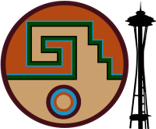18th International Workshop on Advanced Computing and Analysis Techniques in Physics Research
The 18th edition of ACAT will bring together experts to explore and confront the boundaries of computing, automated data analysis, and theoretical calculation technologies, in particle and nuclear physics, astronomy and astrophysics, cosmology, accelerator science and beyond. ACAT provides a unique forum where these disciplines overlap with computer science, allowing for the exchange of ideas and the discussion of cutting-edge computing, data analysis and theoretical calculation technologies in fundamental physics research.
There is a fundamental shift occurring in how computing is used in research in general and data analysis in particular. The abundance of cheap, powerful, easy to use computing power in the form of CPUs, GPUs, FPGAs, etc., has changed the role of computing in physics research over the last decade. The rise of new techniques, like deep learning, means the changes promise to keep coming. Please join us to explore these future changes, and learn about new algorithms and ideas and trends in scientific computing physics. Most of all, join us for the discussions and the sharing of expertise in the field.
Proceedings
The proceedings have been published as of September 2018 in the IOP journal. DOI's, abstracts, and the PDF's can be found at IOP's site. PLease reference early and often!
AI Reloaded
The ACAT series was originally called AIHENP, Artificial Intelligence in High Energy and Nuclear Physics . Machine Learning, long existing within our field, now has a very active community outside it. As a result, more progress than ever has been made driving Machine Learning forward. ACAT is a forum for discussing all types of cutting edge uses of computing in physics, we will have several plenaries and panel discussions focusing on Machine Learning at this edition of ACAT.
The Program!
The plenary program is mostly set! You can see full details of speakers and times and full titles here. But a quick summary: T. Ueda on FORM, K. Cranmer on Deep Learning in Particle Physics, B. Nachman on Deep Learning in experiments, S. Carrazza on Machine learning in theoretical physics, J. Vanderplas on Data Science in Astronomy, H. Sutter on programming languages and science, S. Laporta on the new g-2 calculation, A. Putnam on CATAPULT, A. Araki on the future of analytics and hardware, A. Kronfeld on ML in complex multiscale systems, E. Sexton-Kennedy on HEP Software development in the next decade, W. Giele on the MCFM generator, D. Bard on Containers and HPC, R. Panchumarthy on DL on Nervana, C. Williams on D-Wave, B. Ruijl on the Go Game and Loop Integrals, S. Gleyzer on ML in HEP, D. Whiteson on DL in Particle Physics, M. Hildreth on Data Preservation in HEP, H. Gray on Tracking and future challenges, G. Langford on Immigrants and Minorities in Science, and T. Gibbs on ML at NVIDIA.
The parallel sessions and poster sessions are mostly set as well!
Can't wait to see everyone here in Seattle!
Seattle!
This edition of ACAT takes place on the main Seattle campus of the University of Washington, in Alder Hall. A 40 minute light-rail ride from the Airport, the hall is located walking distance from a number of hotels and dorm rooms. Light-rail provides easy access to the rest of Seattle.
More Info
Sign up for email notifications here. This list is low traffic and will only get you ACAT conference announcements and general information (for this and future conferences in the ACAT series).
Many people have worked together to bring you this conference! The organization page has some details. D. Perret-Gallix is chair of the International Advisory Committee, F. Carminati is chair of the Scientific Program Committee, G. Watts is the chair of the Local Organizing Committee. Track 1 (Computing Technology) is organized by Niko Neufeld (Chair), Graeme Stewart, Mira Girone, Shih-Chieh Hsu. Track 2 (Data Analysis) is organized by Sergei Gleyzer (Chair), Gregory Golovanov, Andy Haas, Toby Burnett, and Track 3 (Computations in Theory) is organized by Ayres Freitas, Stephen Jones, Fukuko Yuasa.
